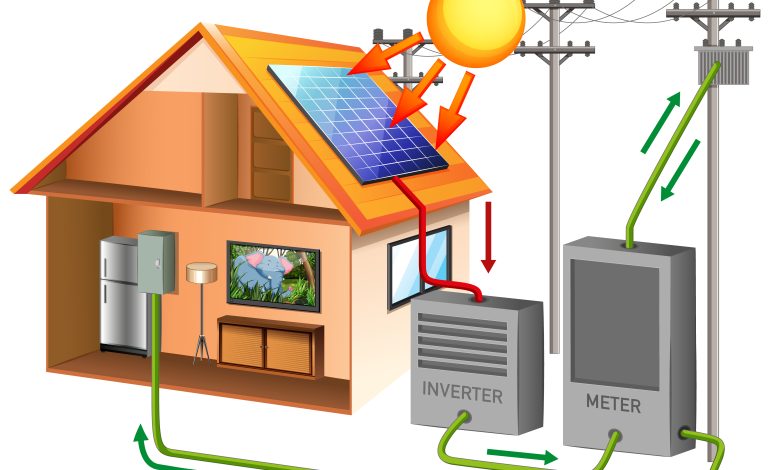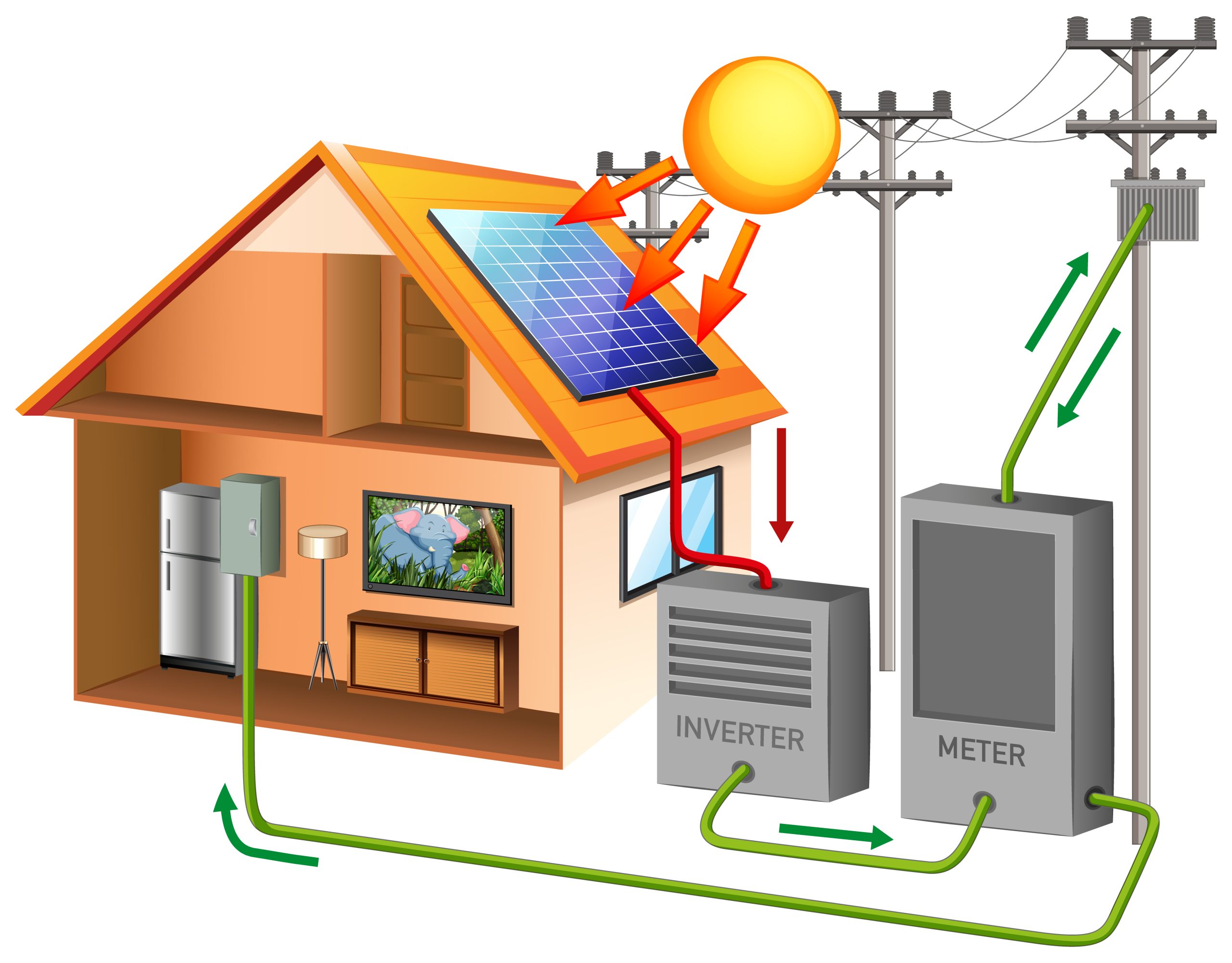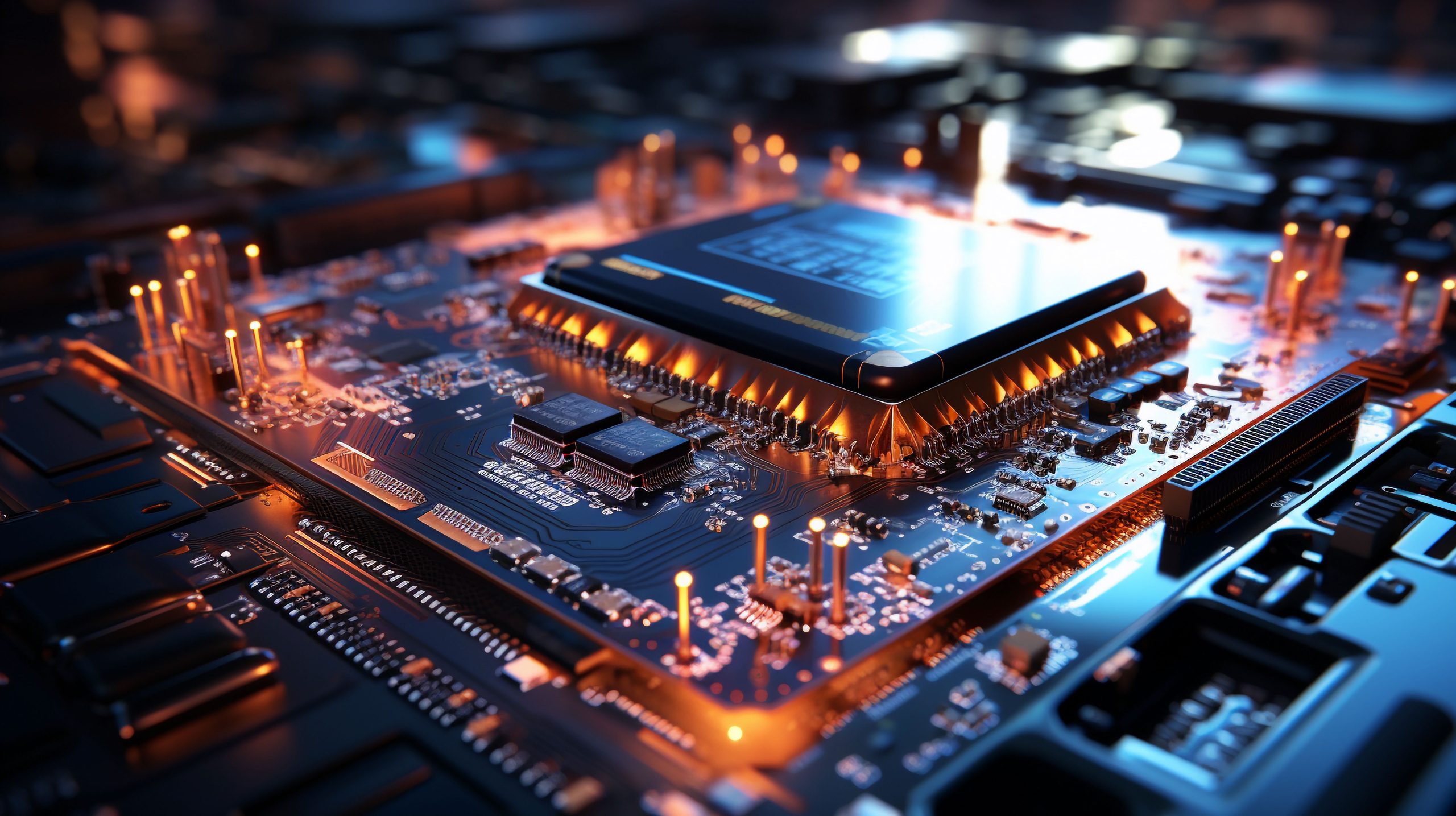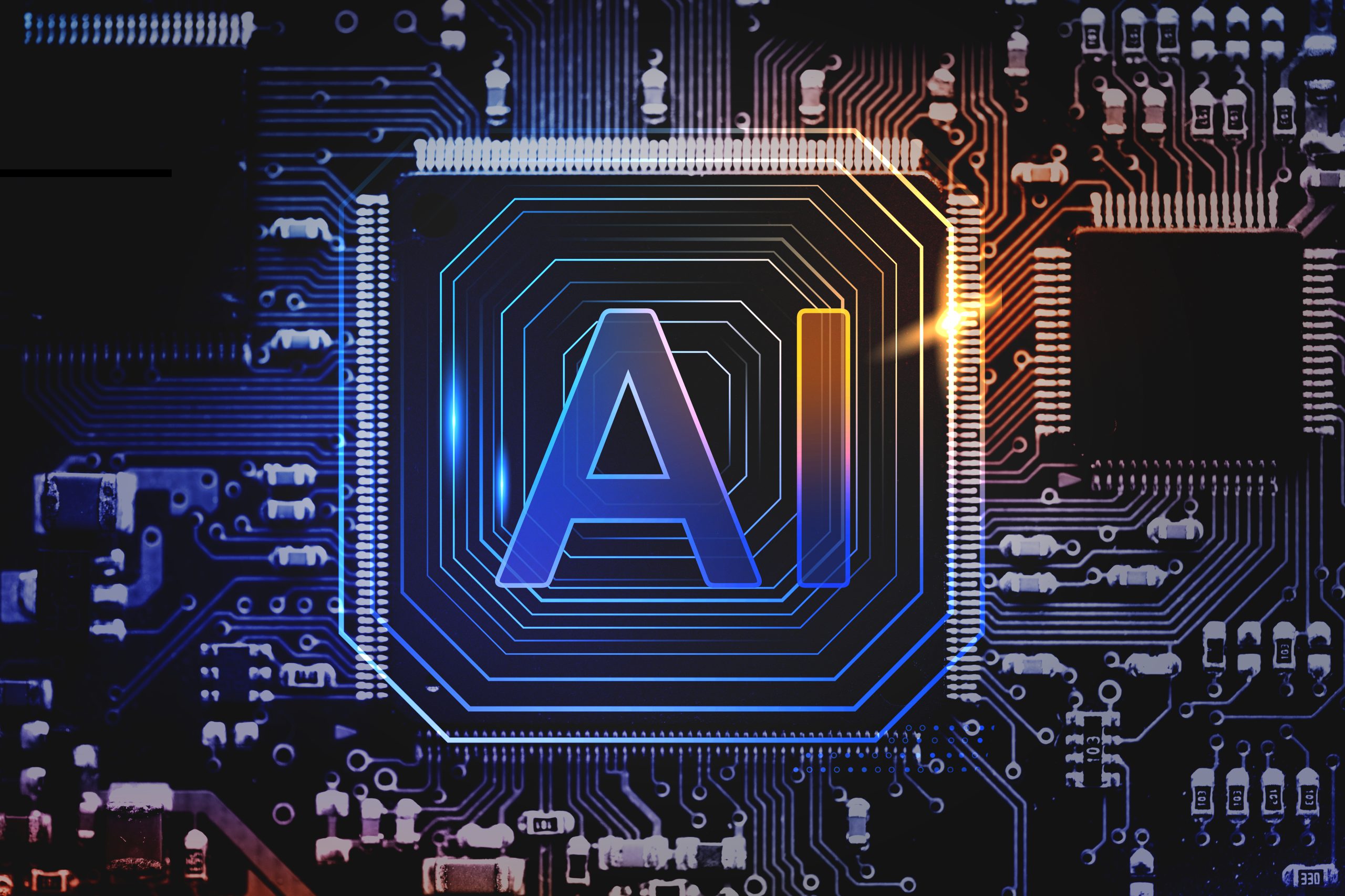Solar Panels Lahore: Complete Guide to Costs, Benefits & Buying Local
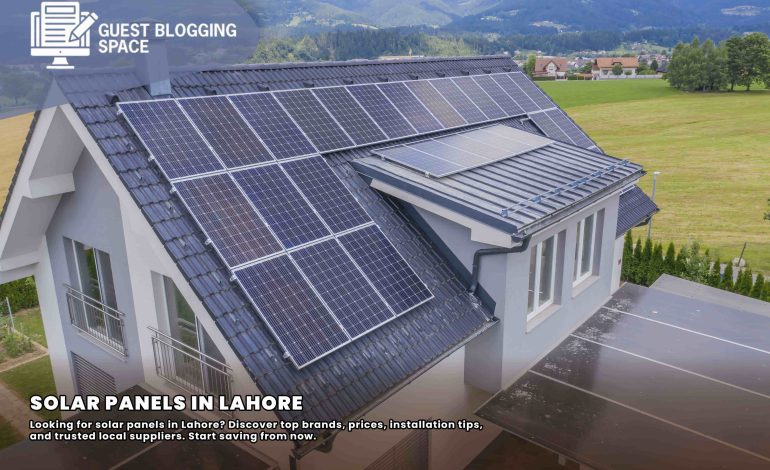
Introduction: Why solar matters now more than ever
The world is shifting. Power grids are aging. Climate change is accelerating. Energy costs are rising. In this moment of uncertainty, one solution continues to rise with the sun—solar energy.
Harnessing the power of sunlight isn’t new. But it’s now more efficient, accessible, and more essential than ever. Whether you’re a homeowner in Lahore or a student curious about renewables, understanding the basics of solar energy is your first step toward an empowered, sustainable future.
In this blog, you’ll learn everything from how solar panels work, to where you can buy the right system in Lahore, and even how it pays you back overtime. Now this is not just theory, it is a roadmap for action.
What Is Solar Energy? A Simple Explanation
The energy obtained from the sun is called solar energy۔ It’s clean, abundant, and available every single day—no fuel needed, no pollution caused. It travels to Earth as light and heat. But with the right technology, we can turn that sunlight into electricity we use to power homes, businesses, and entire cities.
At its core, solar energy is a renewable energy source. That means it won’t run out anytime soon. Unlike oil or coal, which take millions of years to form and pollute the environment when used, the sun shines freely and naturally.
Every second, the Earth receives more energy from the sun than the entire planet uses in a day. That’s the incredible potential we’re just starting to tap into.
How Solar Energy Works: Sunlight to Electricity
Here’s the simple truth: solar energy works by turning sunlight into electricity. This process relies on something called the photovoltaic effect—don’t worry, we’ll break that down.
Step-by-Step Process
- When sunlight hits an open area or solar panels installed on the roof of a house.
- Inside each panel are solar cells, usually made of silicon.
- When sunlight hits the cells of the panels, it then loosens the electrons. causing the flow of electricity.
- That electricity is direct current (DC)—but your home uses alternating current (AC).
- That’s where the solar inverter comes in. It converts DC into usable AC power.
- The converted electricity powers your home, and any extra is either stored in batteries or sent back to the grid (thanks to a process called net metering).
Its simplicity and scalability are the beauty of this system. It can power a tiny light bulb or an entire neighborhood, depending on how many panels you install.
Types of Solar Power Systems: Which One Fits Your Needs?
Solar energy isn’t one-size-fits-all. Different systems work better depending on your energy needs, location, and budget. Here’s a quick overview of the main types:
-
Photovoltaic (PV) Systems
These are the most common solar panels you see on rooftops. TSunlight is directly converted into electricity by them using the photovoltaic effect we talked about earlier. PV systems can be grid-tied (connected to the electricity grid) or off-grid (independent, often paired with batteries).
-
Solar Thermal Systems
Instead of producing electricity, these systems use sunlight to generate heat. You’ll often find them heating water in homes, pools, or industrial processes. Solar thermal can be more efficient for heating needs but doesn’t generate electrical power.
-
Concentrated Solar Power (CSP)
This is a large-scale technology mostly used in power plants. CSP concentrates sunlight using mirrors or lenses to produce intense heat, which powers turbines to generate electricity. It’s not common for residential use but is a big player in clean energy production worldwide.
Components of a Solar Energy System: What Makes It Work?
Understanding the parts of a solar system helps you choose the right setup. A typical solar energy system includes:
-
Solar Panels
These capture sunlight and convert it into electricity. Most panels are made of silicon cells, and their quality affects efficiency and lifespan.
-
Solar Inverter
The inverter changes the direct current (DC) electricity produced by panels into alternating current (AC) electricity used in homes.
-
Batteries
Batteries store surplus energy, allowing you to use solar power even when there’s no sunlight. They’re especially important for off-grid systems.
-
Charge Controller
This device manages battery charging, preventing overcharging or damage, ensuring your battery lasts longer.
-
Net Metering System
If your system is connected to the grid, net metering lets you send extra power back to the utility company, reducing your electricity bills.
Installation & Operation: Getting Your Solar System Up and Running
Installing solar panels might seem complex, but it’s straightforward when done by professionals. Here’s how it usually works:
Installation Steps
- Site Assessment: Experts check your roof or property to evaluate sunlight exposure and structure.
- Design & Permits: They design a system tailored to your needs and get necessary approvals.
- Panel Installation: Solar panels are securely mounted, typically on rooftops or open spaces.
- Wiring & Inverter Setup: Electrical connections are made, and inverters installed.
- Inspection & Activation: Final checks ensure safety and efficiency before turning the system on.
Factors Affecting Performance
- Sunlight availability: Lahore enjoys good sunlight, but shading from trees or buildings reduces efficiency.
- Panel Orientation & Tilt: Panels should face south with an optimal tilt angle to capture maximum sunlight.
- Maintenance: Regular cleaning keeps panels efficient by removing dust and debris.
Costs & Payback
- Initial costs vary based on system size and quality but have dropped significantly over the years.
- Many users in Lahore see payback in 5-7 years through savings on electricity bills and government incentives.
Efficiency & Reliability: How Well Does Solar Energy Perform?
Solar energy’s efficiency depends on several factors, but modern technology has greatly improved performance. Here’s what you need to know:
Efficiency Factors
- On average, monocrystalline solar panels offer better efficiency than their polycrystalline counterparts..
- Sunlight Hours: Lahore typically receives about 8-10 hours of sunlight daily, ideal for solar power.
- Weather: Cloudy days reduce efficiency but don’t stop solar power completely.
- Maintenance: Clean panels work better—regular washing removes dust and grime.
Reliability & Lifespan
- With regular care, solar panels—typically covered by a 25-year warranty—can function well beyond that period..
- Battery backups ensure power availability during nights or cloudy weather.
- Solar systems are low-maintenance and often come with remote monitoring options.
Where to Buy Solar Components in Lahore: Your Local Guide
If you’re looking to build or upgrade a solar energy system in Lahore, knowing where to buy quality components is crucial. Lahore has several trusted suppliers and stores catering to solar products. Here’s a quick guide:
Trusted Suppliers and Stores
- Solar City Lahore – One of the largest solar equipment dealers offering panels, inverters, and batteries.
- Pak Solar Store – Known for competitive prices and a wide range of solar products.
- Solar Hub Lahore – Offers installation services along with quality components.
- Local Electronics Markets – Places like Hall Road and Hafeez Center have various shops selling solar parts.
- Online Retailers – Websites like Daraz.pk and OLX also have listings for solar panels and accessories.
Tips for Buying Solar Equipment
- Always check for warranty and certifications to ensure quality.
- Compare prices and ask about after-sales service.
- Verify the efficiency ratings and brand reputation before purchasing.
- For large setups, consider professional consultation before buying.
Frequently Asked Questions (FAQs) About Solar Energy
What is solar energy?
Solar energy is power harnessed from the sun’s rays, converted into electricity or heat for various uses.
How do solar panels work?
They convert sunlight into direct current (DC) electricity using photovoltaic cells, which is then turned into usable alternating current (AC) by an inverter.
Can solar panels work on cloudy days?
Yes, solar panels produce less electricity on cloudy days but still generate some power.
What maintenance is required for solar panels?
Regular cleaning to remove dust and debris and periodic checks by professionals to ensure optimal performance.
Can I install solar panels myself?
While DIY kits exist, professional installation is recommended for safety and efficiency.
Are there government incentives for solar energy in Pakistan?
Yes, the Pakistani government offers subsidies, net metering policies, and tax benefits to encourage solar adoption.
How much does a solar system cost in Lahore?
Costs vary by size and quality but have decreased significantly, with typical payback periods of 5-7 years.
What happens during power outages?
If you have battery storage, your solar system can provide power. Otherwise, grid-tied systems shut off automatically for safety.
Where can I buy solar components in Lahore?
Trusted suppliers include Solar City Lahore, Pak Solar Store, Solar Hub, and local markets like Hall Road and Hafeez Center.
Final Thoughts: Why Solar Energy is the Future for Lahore
Solar energy offers a clean, affordable, and reliable power solution. With Lahore’s abundant sunlight, adopting solar power not only reduces electricity bills but also helps protect the environment. As technology advances and prices continue to drop, solar energy is becoming more accessible for everyone.
Investing in a quality solar system means long-term savings, energy independence, and a smaller carbon footprint. Whether you’re a homeowner or a business, solar power is a smart choice for a sustainable future in Lahore.


